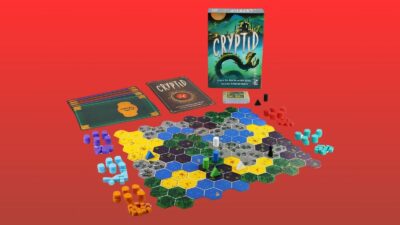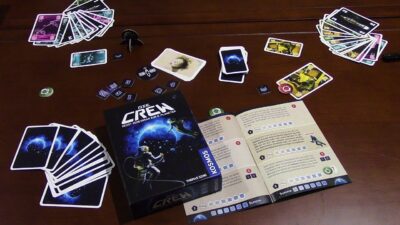The relationship between the producers and consumers of content is a tumultuous one. For the AAA developer, especially, retaining the goodwill of their players is often an uphill battle. Yes, they produce some of the best titles in the medium (they are “AAA” for a reason), but they also seem to take every opportunity to nickel-and-dime the people who play them. Whether it’s titans like EA prioritizing profit margins over player satisfaction, or Bethesda and Nintendo using charismatic higher-ups to deflect criticism, their endeavors all share a similar disregard for designing the best experience possible. So we grow numb, our faith in the brands slowly diminish, and we all just kind of stew in resignation until they issue their perfunctory “we care”statement to coax us back into perpetuating the cycle.

Until recently, the big developers didn’t need to foster sustainable fanbases. Releasing new installments of a franchise on an annual basis meant that maintenance of any kind, whether of the games themselves or the communities that form from their player base, was a poor investment. But as long-term “service games” have gained in popularity, it has suddenly become very important to make sure gamers don’t jump ship. In order to truly succeed in the medium, these studios must now more than ever warrant a qualitative investment in their audience, as that element of authentic engagement breeds stronger stock than any number of copies sold. Simply put, engaged communities bring the industry’s coveted longevity, which in turn produces success. It’s a mentality that’s already been thriving within the indie scene for years, with few recent examples demonstrating the point more than Toby Fox’s surprise gift, DELTARUNE.
Preambled by cryptic Twitter messages the week prior to Halloween and poised as a “fan survey,” DELTARUNE launched with more internet fervor than just about anything else released that month, save the collective market obsession that is RED DEAD REDEMPTION 2. The reveal was for a demo of sorts, offering fans of Fox’s previous work an exploration of what he originally intended UNDERTALE to be back in 2012, and a little peek into what he hopes to make a much grander experience (assuming he can get the manpower). Yet at a cursory glance, there honestly isn’t a whole lot to DELTARUNE that isn’t already lauded about Fox’s 2015 delight. Outside of a few upgrades to the battle mechanics and upping some of the presentation, DELTARUNE essentially replicates everything that made his previous offering a sleeper hit: a charming cast, with dozens of fan favorites as cameos, an emphasis on humor, some self-awareness, and rocking tunes courtesy of Toby himself.

While Toby’s new prequel/sequel/“alternate universe” project is still a little light on content to be effectively compared to other indie titles, this introductory chapter’s existence speaks more towards a broader, “media attitude” perspective. Love it or hate it, the UNDERTALE fandom is one that’s ever-expansive and constantly active, even three years after the game’s stint of mainstream relevance through the venues of music remix, theories, and entire other games. Something that’s effectively a one-man show retaining the level of notoriety and praise it has for so long is astonishing for any creator, indie or otherwise. So what exactly makes displays like DELTARUNE special? Reciprocity and continual fan engagement.
The reason DELTARUNE exists at all is because the community Toby helped to cultivate and still retains coexists with his work: not simply because he happily absolves them of pocket change or has accepted his transformation into a meme, but because both parties actively foster each other’s growth. The fanbase that UNDERTALE and DELTARUNE have accrued participate in the creative process, with Fox encouraging his community to get inventive with the material, scour the code for easter eggs, and provide legitimate feedback to work into the final product. And in return, Fox bolsters their good faith by providing a little something new (for free, no less): something to explore, discuss, and keep them excited for what comes next.

Fox obviously isn’t alone in displaying this type of relationship with fandom, though his dedication toward keeping his fanbase engaged displays a standard others within the industry should aspire toward. Community cultivation is pocketed all throughout the scene, manifested through varied means. To use an example that dips into multiple mediums, big internet gaming personalities like the Game Grumps and Jesse Cox have vested heavily the past year into producing games for their communities on YouTube, resulting in DREAM DADDY and MONSTER PROM, respectively. These games, made out of a love of the VN genre and desire to share less“traditional” stories within it, likewise comes from a place of authentic care, particularly toward both parties’ more underrepresented viewer base. Not only do these games represent the people who quantify them in positive, refreshing ways, but also continue pushing for broader engagement with these fans by way of free narrative updates.
While these devs have certainly embraced their fans, their relationship is also one of pragmatism. Indie devs don’t have the resources of the industry big boys to afford fancy trailers, billboards, or marketing campaigns to raise awareness of their product. Rather, they rely on their audience to evangelize outsiders, in turn netting them a larger following (and income). This may be a kind of cynical perspective, but it doesn’t detract from the value these devs place into cultivating their fandoms, nor from allowing them to grow of their own accord.

Even if you are a AAA studio with a Scrooge McDuck pool of cash, that doesn’t mean that treating your audience with basic human dignity is bad business, either. For instance: Blizzard, despite introducing the plight of loot boxes upon the world, also made MMOs cool with WORLD OF WARCRAFT, and you don’t keep a game running for 15 years by treating your fans like shit. Each of Blizzard’s properties boast some of the most devoted fanbases on the planet, which they’ve no doubt retained through their massive conventions for their brood and extensive use of sprawling in-game events throughout their active properties.
Another point of interest is the current status of NO MAN’S SKY, which over two years has slowly made good on its original promises to fans through significant overhauls and updates. While these implementations don’t strike the game’s abysmal launch from the record, it does display a willingness to try and do better for its audience that is sorely lacking elsewhere within the industry. Whether NO MAN’S SKY demonstrates a belated resolve toward putting community first, or just drawn-out damage control, is honestly up to interpretation. But if the game’s unprecedented comeback has made anything certain, it’s that appeasing your fanbase will make them play your game.
Regardless of your stance on the state of gaming culture, one thing to take away is this: more than anything else, community is the lifeblood of the medium. And in an industry whose identity is predicated on interaction, the relationship creators make with their communities must extend past the transactional. If displays like DELTARUNE are anything to go by, dedication to communities, not just through pushing content, but actively engaging with and motivating interpersonal connections, is what makes games and the medium genuinely worth investing in.
















Comments